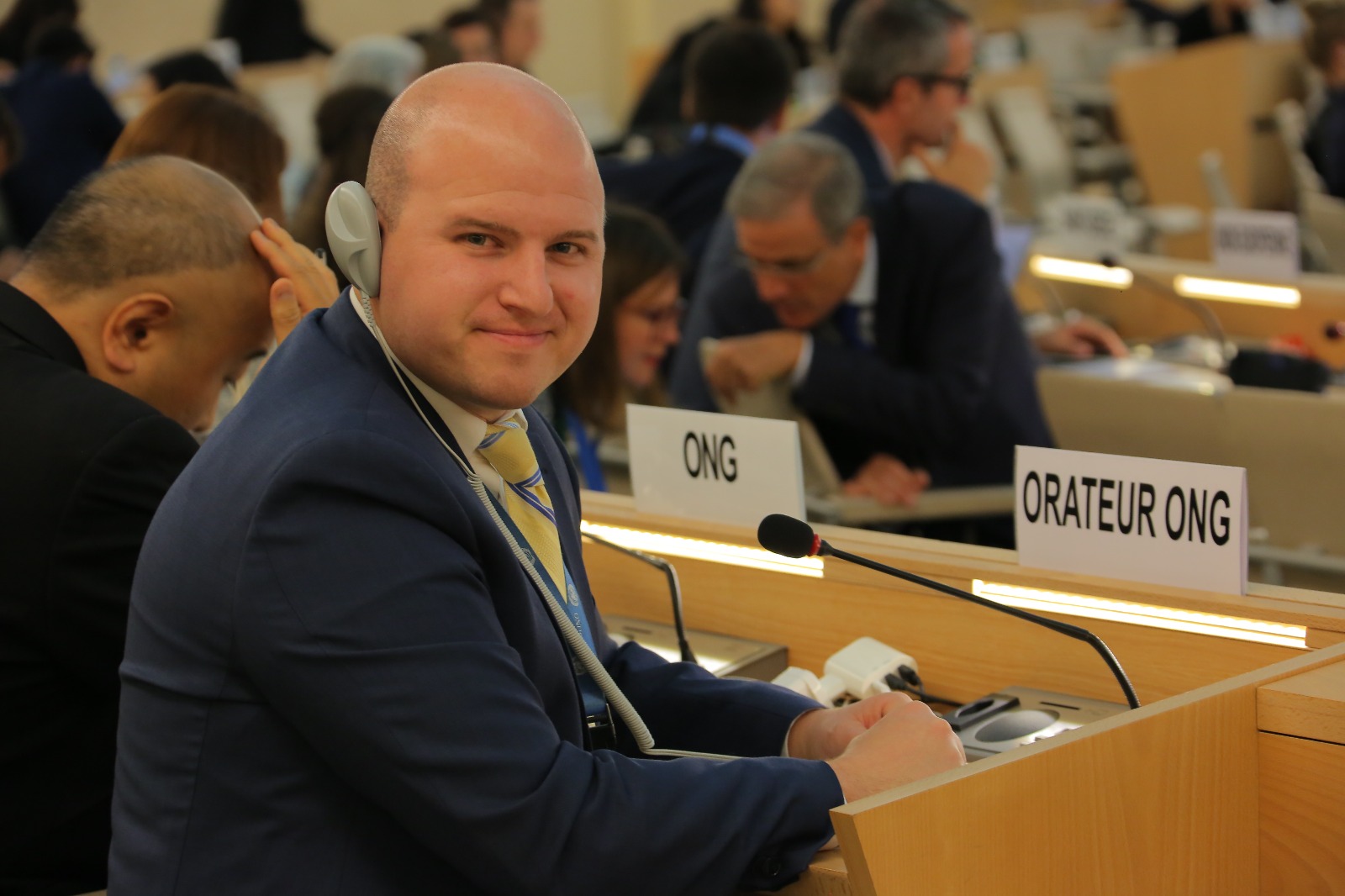On 13 September at the 36th session of the Human Rights Council in Geneva, ADHRB’s International Advocacy Officer, Michael Payne, delivered an oral intervention under the Item 3 interactive dialogue with the Working Group on Mercenaries. In his intervention, Payne discussed the United Arab Emirates’ extensive private military contract companies and foreign recruits and their employment on assignments that “necessarily entail the violation of human rights.” In this context, he raised the case of the UAE’s use of mercenaries in Yemen. Please continue reading for the text of his intervention, or click here for a PDF.
Mr. President,
IDO with Americans for Democracy & Human Rights in Bahrain would like to thank the Working Group for its report on best practices to regulate private military companies and prevent the use of mercenaries to violate human rights. It is imperative that the report’s findings be implemented in countries that continue to exhibit poor practices for the recruitment and deployment of mercenaries.
For example, the United Arab Emirates makes extensive use of PMCs and foreign recruits, often for assignments that necessarily entail the violation of human rights like self-determination. In 2011, the New York Times reported that the UAE hired Erik Prince, founder of the American PMC Blackwater which is itself accused of serious human rights abuses, to assemble a secret, “800-member battalion of foreign troops.” The unit is intended to conduct domestic and foreign special operations, including deployments against labor unrest or pro-democracy protests. According to the report, Prince worked with Emirati intelligence to recruit former Colombian special forces and allow them to enter the country posing as migrant workers. The recruiters were told not to hire Muslim personnel because they “could not be counted on to kill fellow Muslims.”
Since then, the UAE has deployed hundreds of Latin American soldiers to Yemen as part of the Saudi-led intervention. Such units have reportedly swelled to at least 1,800 personnel made up entirely of foreign recruits. According to UN sources, these soldiers may be fighting alongside Eritrean troops also employed by the Emirati military – something that would appear to violate UN sanctions placed on Eritrea over its own human rights abuses.
In such a complex transnational context, how does the Working Group suggest that the best practices identified in the report be implemented to ensure mercenaries are not used to violate human rights?
Thank you.





